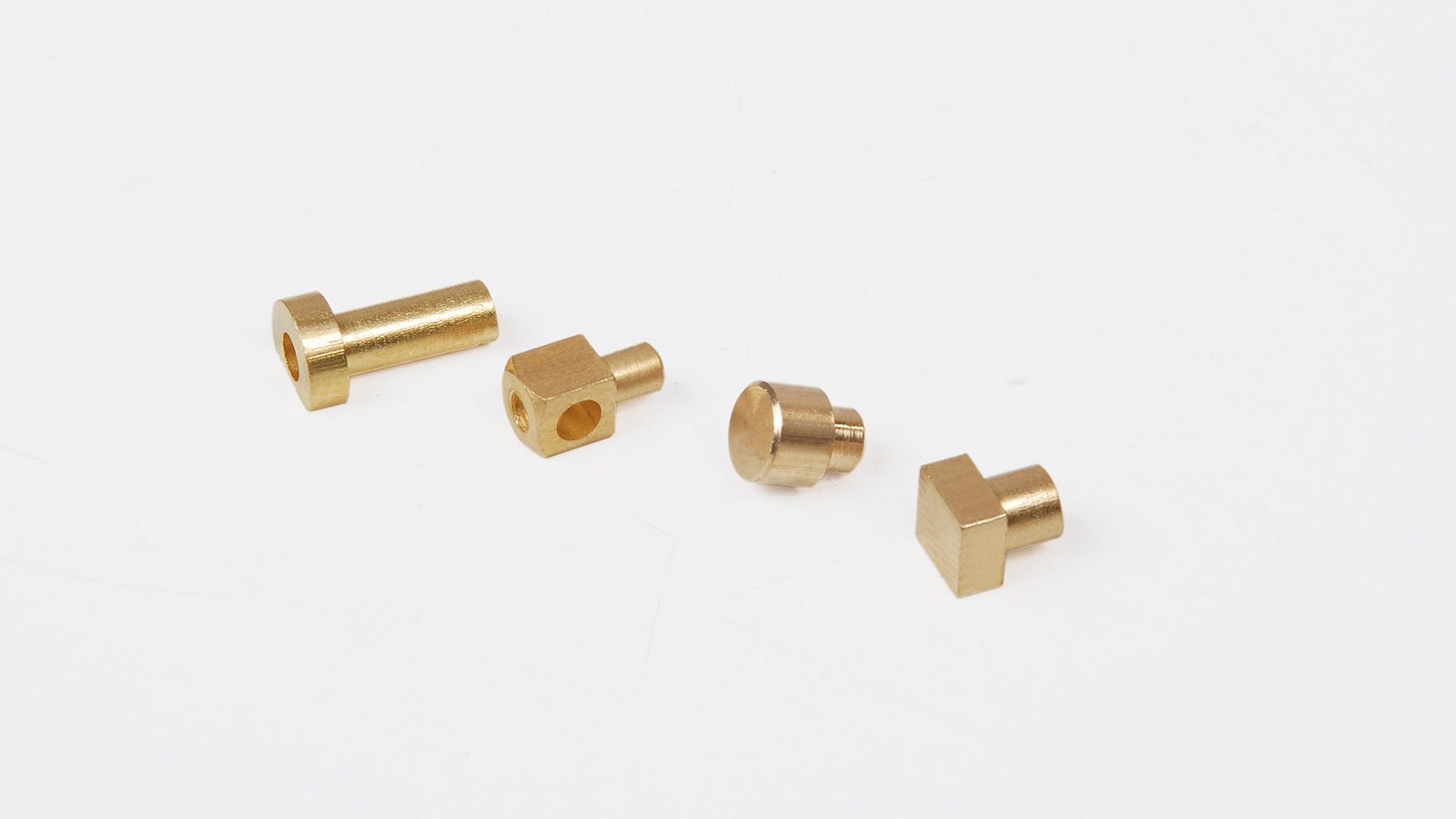We, the Bharti Enterprise is a trusted name in manufacturing and exporting high-quality brass rivets from Jamnagar, India. With over two decades of experience, we specialize in solid brass rivets, semi-tubular rivets, and custom-machined rivets for electrical switchgear, automotive components, sheet metal assemblies, and furniture fittings. All rivets are made from premium brass IS 319 / BS 249 or as per international standards.
Types of Brass Rivets We Manufacture:
- Solid Brass Rivets
- Semi-Tubular Brass Rivets
- Full Tubular Rivets
- Electrical Brass Rivets
- Dome Head Brass Rivets
- Countersunk Brass Rivets
- Decorative Brass Rivets
- Flat Head Brass Rivets
- Custom Rivets as per drawing/specifications
Applications of Brass Rivets:
Electrical Switches and Control Panels
Automotive Body & Brake Components
Furniture Hardware and Handles
Decorative and Architectural Fittings
Water Meters and Sanitary Hardware
Battery Terminals
Why Choose Bharti Enterprise for Brass Rivets?
In-house CNC, VMC, and Automatic Turning Centers
Over 40+ years of export experience
Customized design support with technical drawings
Precision machining and zero-defect quality control
Timely delivery with secure export-grade packaging
ISO 9001:2015 and IATF 16949:2016 Certified
Special Features
| Best for flaring | Customisation possible | Permanent fastening |
Q1. What is the chemical composition of brass used in rivets?
Answer: Our brass rivets are typically made from high-grade alloys like CuZn37 (CW508L) or CuZn40 (CW509L), containing 60–63% copper and 37–40% zinc. These compositions offer an ideal balance of machinability, mechanical strength, and corrosion resistance. We supply brass rivets globally, including to countries like the USA, Europe, UAE, and more.
Q2. What is the typical tensile and shear strength of brass rivets?
Answer: Brass rivets generally exhibit tensile strength between 300–500 MPa and shear strength around 200–350 MPa, depending on the alloy grade and size. This makes them suitable for load-bearing and vibration-resistant assemblies across multiple industries.
Q3. What is the maximum operating temperature for brass rivets?
Answer: Brass rivets can function effectively in temperatures up to 200°C (392°F). Beyond this point, the material may begin to lose strength due to thermal softening, making it less suitable for high-heat environments like engine compartments.
Q4. Are your brass rivets CNC machined or cold headed?
Answer: We offer both CNC machined and cold-headed brass rivets. Cold heading is preferred for high-volume production, while CNC machining allows for precision rivets with intricate shapes or custom tolerances.
Q5. What surface finishes are available for brass rivets?
Answer: Brass rivets naturally resist corrosion, but we also offer nickel plating, chrome plating, tin coating, and polished finishes for enhanced appearance, conductivity, or wear resistance — especially for export to the USA and European markets.
Q6. What tolerances do you maintain during manufacturing?
Answer: We adhere to ISO 2768-m or tighter tolerances on request. Typical tolerances for rivet diameters and lengths are within ±0.05 mm, ensuring consistent fit and performance in automated or precision assemblies.
Q7. Are your brass rivets compliant with global standards?
Answer: Yes, our brass rivets comply with DIN 661, IS 740, ASTM B134/B135, and other international specifications. We supply precision-tested rivets to OEMs and industries worldwide, especially in USA, Germany, Italy, UK, and Canada.
Q8. What hardness values do your brass rivets offer?
Answer: Depending on the brass grade, our rivets typically fall between 60–100 HV (Vickers Hardness). We conduct hardness tests during production and can provide full metallurgical reports on request for quality assurance.
Q9. Can brass rivets be used in grounding or EMI shielding applications?
Answer: Yes. Brass has high electrical conductivity (up to 28% IACS), making it ideal for low-voltage grounding, electrical enclosures, and EMI/RFI shielding components, especially for export to electronic and telecom industries in Europe and North America.
Q10. How does brass perform compared to stainless steel or copper in rivet use?
Answer: Brass is more cost-effective than copper and offers better corrosion resistance than mild steel. While stainless steel offers higher strength, brass is easier to machine, lighter in weight, and provides better conductivity — a combination ideal for applications in automotive, electronics, leather goods, and export hardware.









